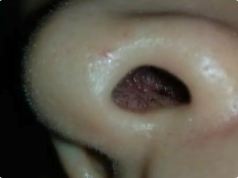For millennia, death has been one of humanity’s greatest mysteries. A boundary between life and the unknown, it has inspired myths, religions, and endless philosophical debate. But what if science is beginning to pull back the veil?
A groundbreaking new study is challenging the long-held belief that consciousness ends the moment the heart stops. Instead, it suggests that our awareness may linger — even after clinical death.
The Largest Study of Its Kind: Peering Beyond the Threshold of Death
Conducted by a team of researchers from the University of Southampton, in collaboration with hospitals across the United States, England, and Australia, this landmark study is one of the most comprehensive investigations into near-death experiences (NDEs) ever undertaken.
The research focused on over 2,000 patients who suffered cardiac arrest — a condition in which the heart stops beating, blood flow ceases, and the person is clinically dead.
After being resuscitated, hundreds of these patients were interviewed about their experiences during the period of clinical death.
What Did the Study Find?
The results were nothing short of astonishing.
- Around 40% of survivors reported some form of awareness during cardiac arrest.
- Some described vivid memories — hearing doctors speak, feeling sensations, or seeing events in the room.
- A subset of patients accurately recalled specific details — conversations, medical procedures, and even the sounds of machines — that were later confirmed by medical staff.
One patient, resuscitated after being clinically dead for three minutes, described the entire process — from the moment the defibrillator was charged to the doctor’s comment: “He’s not coming back.” — all while his brain showed no measurable activity.
“It was like watching a movie… but I was in it,” he later said.
These were not dreams or hallucinations. They were verifiable, coherent experiences occurring during a time when the brain should have been silent.
Awareness After the Heart Stops: A Scientific Paradox
Traditionally, medical science has assumed that:
- When the heart stops, blood flow to the brain halts.
- Within 20–30 seconds, brain activity flatlines.
- Consciousness, therefore, ends immediately.
But this study suggests otherwise.
Researchers found that some form of consciousness may persist for up to several minutes after clinical death. In rare cases, patients reported heightened clarity, time distortion, and even feelings of peace or transcendence — experiences often described in near-death accounts.
This raises a profound question:
If the brain is “off,” how is the mind still working?
What Could Explain This?
While the study doesn’t claim to prove an afterlife, it opens the door to new scientific theories:
- Residual brain activity: Tiny pockets of the brain may remain active longer than previously thought, possibly generating conscious experience.
- Quantum consciousness theories: Some scientists speculate that consciousness may not be entirely dependent on the brain — a controversial but increasingly discussed idea.
- Oxygen-independent neural processes: The brain might retain the ability to process information in low-oxygen or no-oxygen states, at least briefly.
As Dr. Sam Parnia, lead researcher on the study, explains:
“We used to think death was a moment — a full stop. But now we’re learning it’s more like a process — one that may be reversible and during which the mind may still be active.”
Philosophical and Medical Implications
This research goes far beyond curiosity. It has real-world consequences for medicine, ethics, and our understanding of existence.
🏥 For Emergency Medicine
- Resuscitation efforts may need to be extended, knowing that the brain could still be active after cardiac arrest.
- Medical teams may need to be more mindful of what they say and do during resuscitation — patients might hear them.
🧠 For Neuroscience
- The mind-body connection is more complex than we thought.
- Consciousness may not be as tightly tied to brain function as once believed.
🕊️ For End-of-Life Care
- Understanding the dying process can help reduce fear and improve palliative and hospice care.
- Families can find comfort in knowing that death may not be as abrupt or painful as imagined.
Reflections on Life, Death, and What Comes Next
This study doesn’t claim to prove heaven, reincarnation, or the soul — but it does challenge the idea that death is a hard cutoff.
Instead, it suggests that:
- Death is a process, not an event.
- Awareness may outlast the heartbeat.
- The boundary between life and death is blurrier than we ever thought.
And that changes everything.
Final Thoughts: A New Way to Think About the End
We’ve long feared death as the end of everything. But what if it’s not an end — but a transition?
This research invites us to reflect:
- Prepare emotionally: Talking about death helps us live more fully.
- Support scientific inquiry: Studying consciousness and dying is not morbid — it’s essential.
- Embrace interdisciplinary dialogue: Science, philosophy, religion, and psychology all have something to contribute.
As we stand on the edge of this new understanding, one thing becomes clear:
🪷 We may not yet know what happens after death — but science is finally asking the right questions.
And in that search, we may not just learn about dying…
We may learn how to live more deeply.






